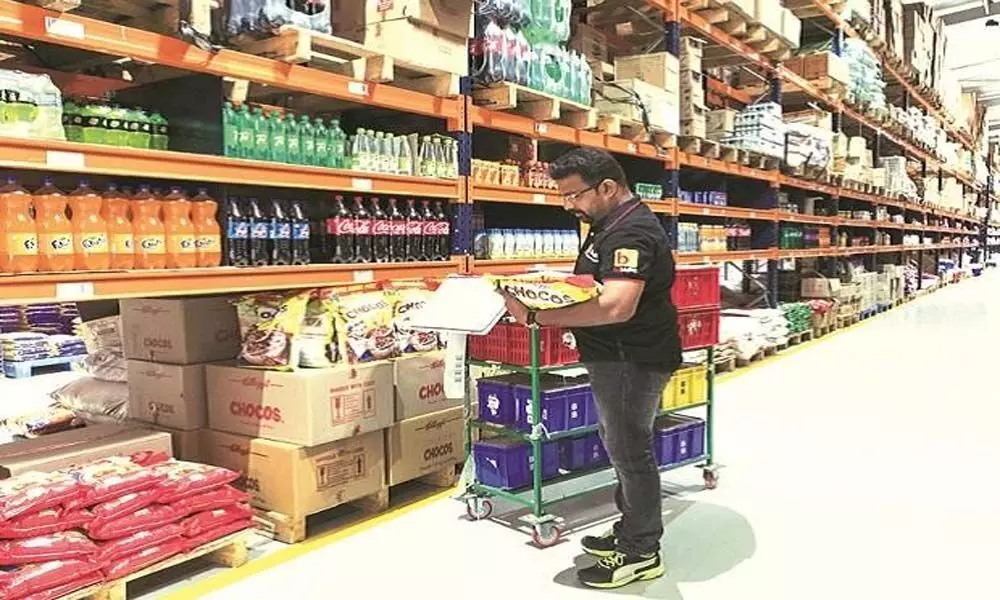Indian retail sector needs a holistic policy framework
While considering rules for e-commerce entities, question arises whether similar protection is given to consumers in brick and mortar stores
image for illustrative purpose

The new draft e-commerce rules have evoked much comment largely because online purchases have become an integral part of our lives. Online sales had been rising rapidly earlier, but after the onset of the pandemic, they have extended far beyond anyone's previous expectations. The need for contactless buying to ensure health and safety was never a consideration earlier. But now as protection from Covid has become imperative, online marketplaces are considered the safest way of shopping for essential supplies. As such, it is incumbent on all of us to review the new proposals for e-commerce and determine whether they are truly in the consumers best interests.
The draft rules have come at a time when there is a global outcry over the anti-competitive nature of the tech giants on their online platforms. The concerns being evinced both in the US and in Europe is that algorithms used by these entities favour Big Tech. As a result, anti-trust investigations have been launched both in the US and the European Union against several of these companies including Amazon. In the case of the latter, the issue of the company operating both as a marketplace as well as a seller has been questioned on ethical grounds. It has been pointed out that data from third party sellers is used to inform Amazon's first party business decisions thus giving it an unfair advantage. It was precisely these issues that were raised two years ago in this country when both Amazon and Walmart-owned Flipkart were asked to divest stake in companies that were selling on their platforms.
Even now, the issue of the privileged role of the online platform thereby giving it an advantage over other sellers is one of the aspects underlying the new draft rules. Yet there is clearly lack of clarity in several areas. This includes the issue of flash sales. The question of which kind of flash sale is banned has been answered in a hazy way by the Department of Industry. The proposal for registration of e-commerce players also brings back memories of the license-raj system. Increasing red tape is not going to improve consumers experience of such marketplaces.
Another clause to ensure that products from abroad should be given options of domestic suppliers of similar goods is surely unnecessary in an open marketplace. If Indian goods are of better quality and more reasonably priced, they will automatically attract consumers and ensure higher sales.
As for the issue of companies associated with the online marketplace, it has now become a concern for domestic companies as well since they will equally be affected by the provision. For instance, both Tata and Reliance are now worried as their associated companies will be barred from their own online market platforms. Yet the principle here remains the same as mentioned earlier. Thus it would not be fair to change the rules merely because they affect domestic players as well.
The issue of liability is another one that must be clarified to some extent. It is no doubt true that the online marketplace needs to do some amount of scrutiny before allowing sellers to operate on these platforms. So there has to be some amount of liability on the marketplace itself to ensure that consumers are buying from legitimate sellers. But the extent should be clearly specified.
While considering rules for e-commerce entities, the question of whether similar protection is given to consumers in brick and mortar stores must be posed. And the answer is that there is little relief for consumers in physical shops. In fact, online marketplaces have given consumers the freedom to buy products and then proceed to either exchange them for others or return them and get easy refunds on their payments. In other words, global sales practices have been introduced in the online space but remain woefully absent in the traditional shopping channels. The response to most consumer complaints is abysmal and the only recourse is to approach consumer courts which is a long and tiresome affair. Besides, for just one or two products, consumers are not prepared to go through the legal route. The net result is there is no remedy for dealing with defective products sold in the usual marketplace. The reason for this cavalier treatment by brick and mortar retail outlets stems from the antiquated "caveat emptor" or "purchaser beware" approach. In other words, buyers must be careful and the responsibility for faulty goods lies on their shoulders. This approach has changed all over the world to "caveat venditor" or "seller beware" placing the onus on the seller for providing poor quality goods. Ethically this is the approach that should be taken by Indian retailers as well. Traders associations should consider this issue sombrely even as they demand action against online platforms for offering deep discounts on goods. It is not just the competitive prices but the protection given to consumers that has made online marketplaces so attractive. It is high time the Indian retail industry makes a course correction and adopts the same global ethical systems as the online platforms.
It is also for the government to craft policies giving consumers adequate protection not just on online market places but in the physical retail space. An even handed approach needs to be taken to both online and brick and mortar retail sectors. The focus must be on bringing in international ethical standards in the retail industry as a whole rather than on one part of it. Such a holistic approach is needed urgently as online platforms are now increasingly setting up physical shopping areas and vice versa. The government must therefore change its long term vision and tailor its policies to meet the needs of the future marketing environment.

